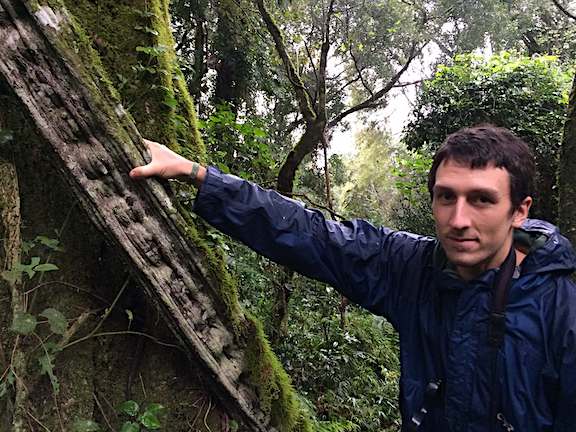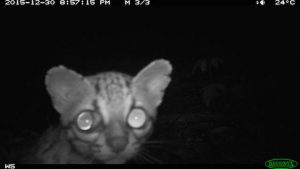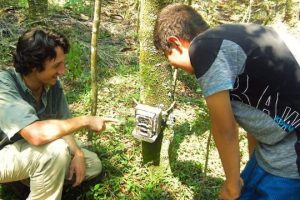By Patrick Farrar
Four outstanding graduate students in UF’s School of Natural Resources and Environment have received the prestigious Graduate Research Fellowship Program awards from the National Science Foundation. The highly-competitive five-year fellowship grants them substantial financial support for their research and education. The SNRE recipients are: Atlantic Forest
- Nick Gengler
- Maggie Jones
- Ben Lowe
- Adam Searles
This series of blog posts serves to highlight these four students and their research interests.

NSF Grant
Nick Gengler was in disbelief when he received this award. As a wildlife ecologist and conservationist, he didn’t think that NSF would choose him over the chemical engineers and astrophysicists.
“It was quite a longshot when I submitted [my proposal], but I guess they liked it,” he said.
His research will focus on the Atlantic Forest in Paraguay, an extremely threatened ecosystem. It once covered a large portion of Brazil, Argentina, and Paraguay. However, over the last several decades, about 90 percent of it has been deforested.
The ten percent that remains is spread out in small patches that are far away from each other, which could be a big problem for animals that live in the forest.
Jaguars used to live in his planned study area but no longer can. However, the Atlantic Forest has the potential to support them once again if restored and conserved. Some interesting species that Nick wants to observe are puma, margay, southern oncilla, spotted paca, red brocket deer, and collared peccary.

Nick will use wildlife cameras in the remaining patches of forest to capture photos when animals pass in front of them. This will show him how well the different mammals living there can use the remaining forest patches as habitat.
Peace Corps
By camping and hiking when he was growing up, Nick picked up an appreciation and respect for nature. As he learned more about outdoor spaces and how threatened some of them are, he felt moved to do something about it.
This led him to volunteer with the Peace Corps, which assigned him to Paraguay. It is a country that doesn’t get much international attention but has major conservation issues, according to Nick.
“Quite honestly, I had no idea where Paraguay was before they told me I was going there,” he said.

During his time there, his current path started to take shape. He enjoyed his experience working on national conservation projects so much that he extended his service from two years to three. By the end, the experience motivated him to study and conserve the Atlantic Forest.
“Along with a personal connection and enjoyment of the area, much of my motivation for conserving the Atlantic Forest stems from the hope that if an ecosystem as severely degraded as the Atlantic Forest can be successfully restored, then that helps prove that much of the other damage humans have done to Earth’s other ecosystems can also be repaired,” he said.
Choosing SNRE
Nick chose to study Interdisciplinary Ecology at UF for his Ph.D. because he wants to be well-equipped for a career in conservation. He felt that he needed a strong science background as well as knowledge of the human side of conservation to achieve his goal.
“You can’t do conservation without working with people,” he said.
Unfortunately, with COVID-19 travel restrictions, Nick has put his research in Paraguay’s Atlantic Forest on hold for the time being. Right now, he is analyzing data from other studies that are similar to his planned project while he waits.
 0
0
